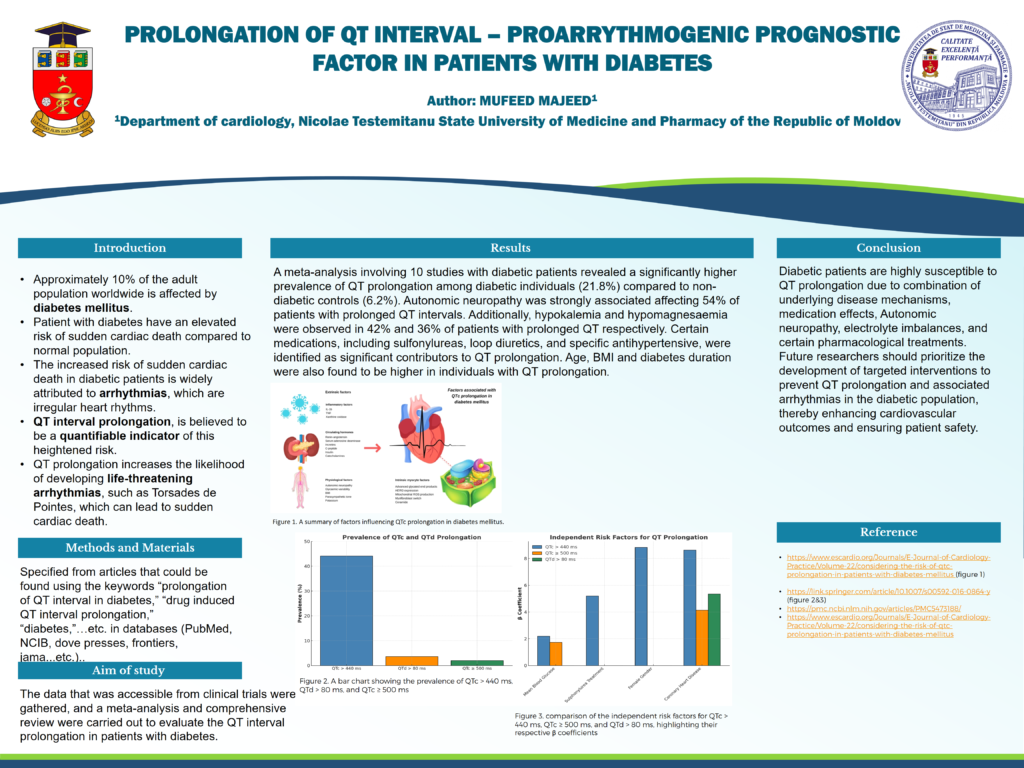Mufeed Majeed
India
PROLONGATION OF QT INTERVAL – PROARRYTHMOGENIC PROGNOSTIC FACTOR IN PATIENTS WITH DIABETES
Mufeed Majeed¹
¹Department of Pharmacology and clinical pharmacology, Nicolae Testemitanu State University of Medicine and Pharmacy of the Republic of Moldova.
Abstract
Background
Approximately 10% of the world adult population is affected by diabetes mellitus. Patients with diabetes exhibit an elevated risk of sudden cardiac death comparing to general population. It is widely believed that the primary cause is arrhythmia and prolongation of QT interval as a quantifiable indicator of this risk.
Methods
Specified from articles that could be found using the keywords “prolongation of qt interval in diabetes,” “drug induced qt interval prolongation,” “diabetes,”…etc. in databases (PubMed, NCIB, dove presses, frontiers, jama…etc.)..
Results
A meta-analysis involving 10 studies with diabetic patients revealed a significantly higher prevalence of QT prolongation among diabetic individuals (21.8%) compared to non-diabetic controls (6.2%). Autonomic neuropathy was strongly associated affecting 54% of patients with prolonged QT intervals. Additionally, hypokalemia and hypomagnesaemia were observed in 42% and 36% of patients with prolonged QT respectively. Certain medications, including sulfonylureas, loop diuretics and specific antihypertensive, were identified as significant contributors to QT prolongation. Age, BMI and diabetes duration were also found to be higher in individuals with QT prolongation.
Conclusions
Diabetic patients are highly susceptible to QT prolongation due to combination of underlying disease mechanisms, medication effects, Autonomic neuropathy, electrolyte imbalances, and certain pharmacological treatments. Future researchers should prioritize the development of targeted interventions to prevent QT prolongation and associated arrhythmias in the diabetic population, thereby enhancing cardiovascular outcomes and ensuring patient safety.


Leave A Comment